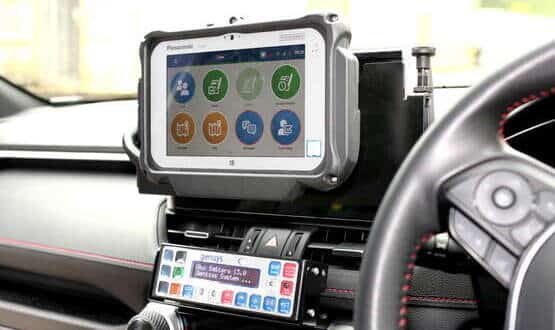QR coded helmets to help in RTAs

Starting this summer, paramedics at South East Coast Ambulance Service will be able to access details of people involved in motorcycle or bicycle accidents by scanning a QR code on their helmet.
The project is pioneered by Sussex Safer Roads Partnership and will make use of iCEQR (In Case of Emergency Quick Response) technology developed by CERQL, which cyclists will be encouraged to stick onto their helmet or bike.
Anyone with access to a QR reader, available on all major smartphones and tablets, can scan the code and be taken to a web page with key information about the user, including written content of up to 1,500 characters and up to ten photographs.
Speaking to Digital Health News, Ian Bennett, company director at Cerql, said this information would have to be uploaded by the user.
However, users are recommended to include some important details for paramedics, including allergies, medications, current conditions and next of kin.
He added that users are advised to put up a photo so emergency services can identify they are dealing with the right person, while other photos could include distinguishing marks such as tattoos.
Graeme Beattie, road safety officer at Sussex Safer Roads Partnership, said the recommended details were decided after consultation with stakeholders, including the ambulance service, which advised that the NHS Number should be included in the options for accessing wider healthcare information.
The police also advised that driving licence number be included as another way to access further details.
It is hoped the scheme will be able to allow emergency services quicker access to crucial medical information in the ‘golden hour’ after an accident.
Sussex Safer Roads Partnership plans to promote the barcodes at a series of biking events in spring and summer, handing out free stickers to the first 5,000 visitors to its stand.
Staff at South East Coast Ambulance Service will be able to access the information on the codes with tablets they are receiving as part of wider technology plans.
The first roll-out of the devices will be in June, when they will be piloted in the Thanet district in Kent. There are plans for further roll-out to the rest of the south east in subsequent months.
Beattie got in touch with Cerql after a Twitter post alerted him to the technology. He was looking to engage the “hard to reach” group of cyclists in a way that was affordable and would allow members of Sussex Safer Roads Partnership to discuss safety with cyclists at events.
He added that although the scheme is looking to serve the local at moment, he is hopeful that other areas in England will make use of the technology. “I hope to see this as a permanent fixture across England.”
Data available on the codes can be accessed for 12 months after which it has to be renewed by the user at a cost of 99p for the year.



